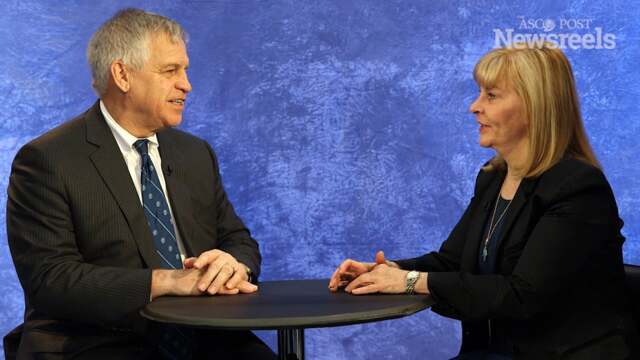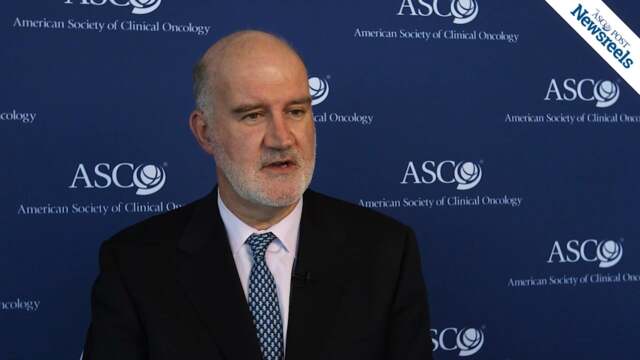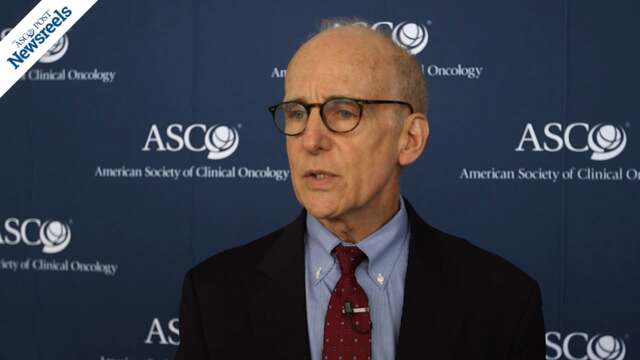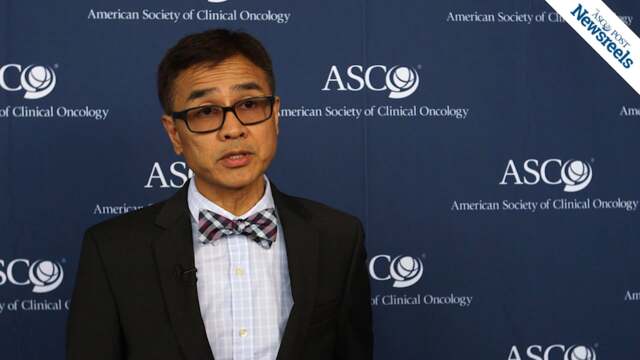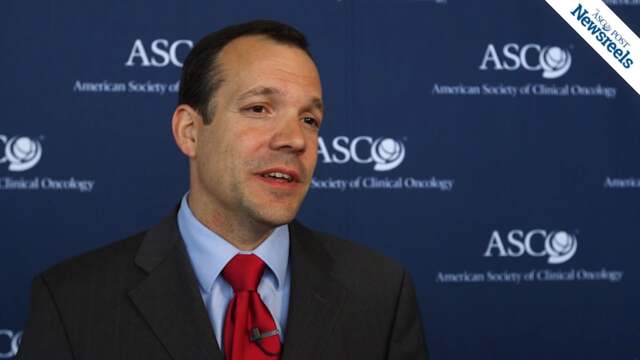Lisa A. Carey, MD, and Nadia Harbeck, MD, PhD, on Early HER2-Negative Breast Cancer: Results of the PlanB Trial
2017 ASCO Annual Meeting
Lisa A. Carey, MD, of the University of North Carolina, and Nadia Harbeck, MD, PhD, of Brustzentrum der Universität München, discuss study findings on adjuvant 4xEC→4x doc vs 6x docetaxel/cyclophosphamide in patients with high clinical risk and intermediate-to-high genomic risk HER2-negative, early breast cancer. (Abstract 504)
Julie Vose, MD, MBA, of the University of Nebraska Medical Center, and Bruce E. Johnson, MD, of the Lowe Center for Thoracic Oncology at Dana-Farber Cancer Institute, discuss Dr. Johnson’s upcoming tenure as ASCO President and his goals for the year ahead.
David I. Quinn, MBBS, PhD, of the University of Southern California, gives his expert perspective on the planned survival analysis from a phase III open-label study of pembrolizumab vs paclitaxel, docetaxel, or vinflunine in recurrent, advanced urothelial cancer. (Abstract 4501)
David H. Henry, MD, of Pennsylvania Oncology Hematology Associates, outlines abstracts focusing on chemotherapy in locally advanced rectal cancer and immune-related toxicity, response to anti–PD-L1 blockade, and epacadostat plus pembrolizumab in lung cancer.
Primo Lara, MD, of the University of California, Davis Comprehensive Cancer Center, discusses three top abstracts on treating advanced renal cell carcinoma with epacadostat, pembrolizumab, atezolizumab, bevacizumab, sunitinib, or pazopanib. (Abstracts 4505, 4507, 4515)
Olivier Tredan, MD, PhD, of the Centre Léon Bérard, discusses results from ProfilER, a study that explored the use of cancer cell genomic alterations to guide treatment in patients with advanced refractory cancer. (Abstract LBA100)
